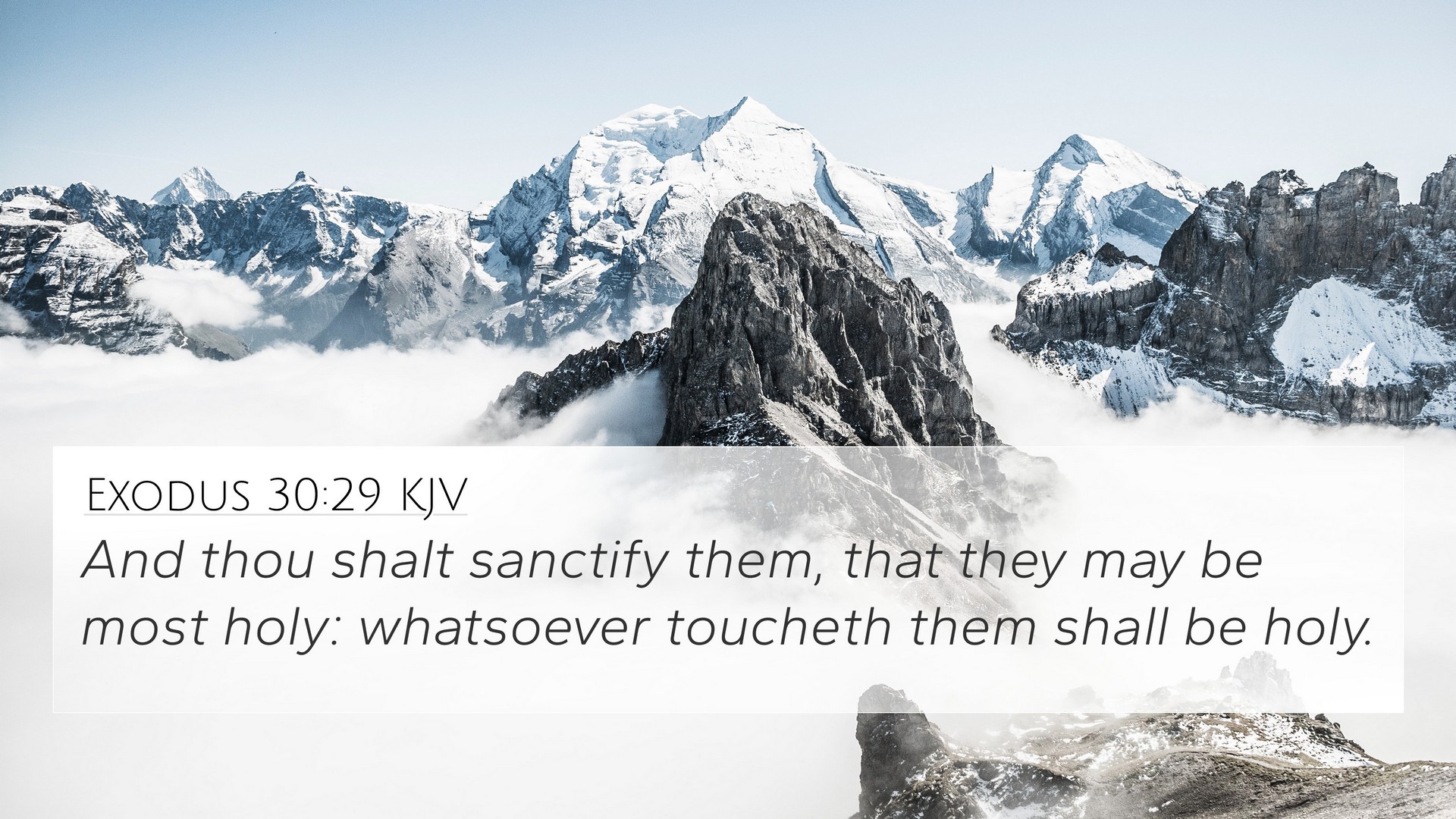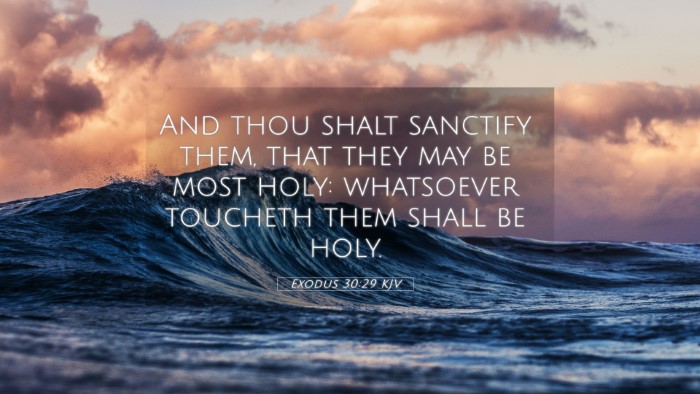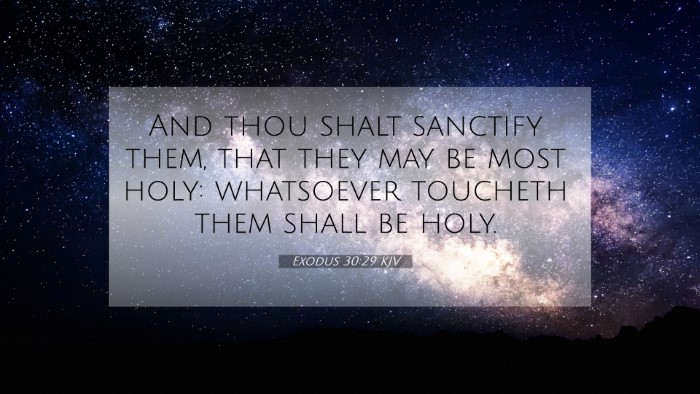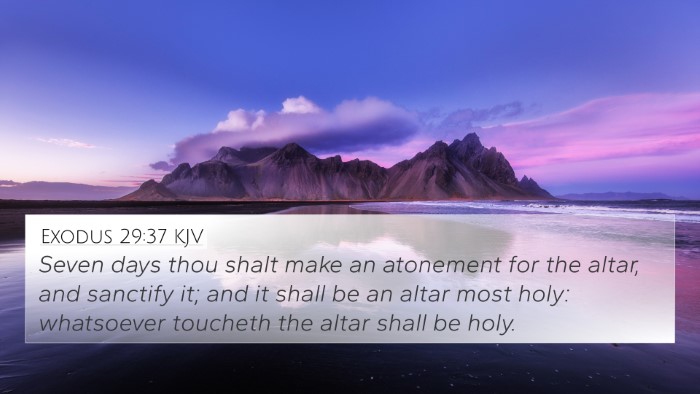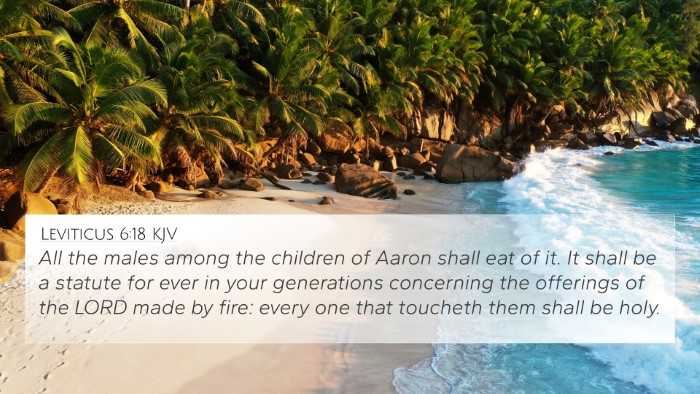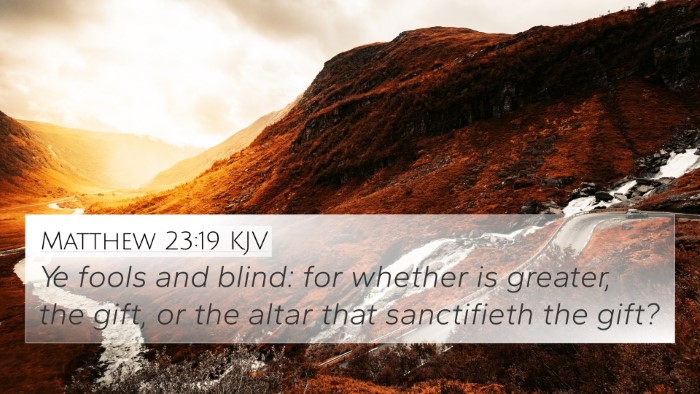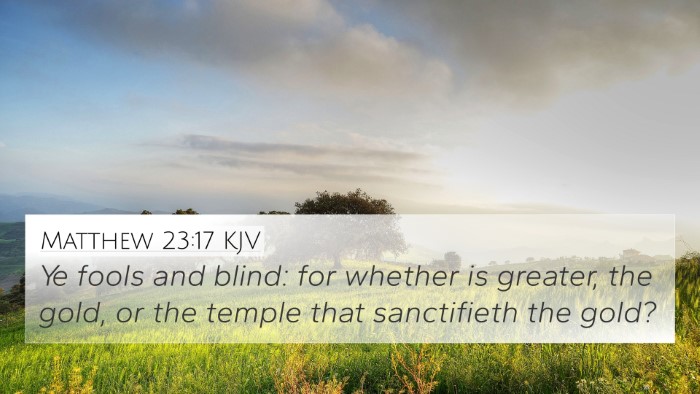Understanding Exodus 30:29
Exodus 30:29 states, "And thou shalt sanctify them, that they may be most holy: whatsoever toucheth them shall be holy." This verse highlights the importance of holiness in relation to the consecration of the priests and the sacred objects used in worship.
Summary of Meaning
The overarching theme of Exodus 30:29 is the profound importance of holiness in the service of God. The sanctification process emphasizes that anything associated with the worship of the Lord, particularly the priests and the holy anointing oil, is set apart for a divine purpose. This verse serves to establish the guidelines for purity in the rituals of worship.
Commentary Insights
-
Matthew Henry:
Henry points out that the sanctification process is crucial for the priests, indicating that they are to be pure vessels for divine service. He notes that holiness is essential, as individuals and items marked 'holy' carry a responsibility that demands reverence and obedience towards God.
-
Albert Barnes:
Barnes elaborates on the significance of what is being consecrated. He emphasizes that the anointing oil and the high priest’s garments carry a divine authority and carry implications for all who come into contact with them. The verse serves as a reminder of the reverent fear and honor that should be given to God’s appointed servitors and His sacred instruments.
-
Adam Clarke:
Clarke provides valuable context regarding the ceremonial practices of the Israelites, explaining that the sanctification with holy oil sets a precedent for understanding divine sanctity. His commentary highlights how the practices of the Old Covenant inform the concept of holiness in the New Testament.
Thematic Connections
This verse connects with multiple themes throughout Scripture, reinforcing the ideas of holiness, consecration, and the divine calling of God's servants. Here are some thematic Bible verse connections:
Related Bible Cross-References
- Leviticus 10:10: "And that you may put difference between holy and unholy, and between unclean and clean." This emphasizes the differentiation between sacred and profane.
- Isaiah 52:11: "Depart ye, depart ye, go ye out from thence, touch no unclean thing." This verse reinforces the principle of holiness in separation from sin.
- 1 Peter 2:9: "But ye are a chosen generation, a royal priesthood, a holy nation." This verse ties to the New Testament understanding of believers as a holy people.
- Hebrews 9:13-14: "For if the blood of bulls and of goats, and the ashes of an heifer sprinkling the unclean, sanctifieth to the purifying of the flesh: How much more shall the blood of Christ, who through the eternal Spirit offered himself without spot to God, purge your conscience from dead works..." This points to the connection between Old Testament sacrificial practices and Christ's ultimate sacrifice.
- Romans 12:1: "I beseech you therefore, brethren, by the mercies of God, that ye present your bodies a living sacrifice, holy, acceptable unto God..." This verse further highlights the call to holiness in the life of believers.
- Matthew 5:8: "Blessed are the pure in heart: for they shall see God." This teaches about internal holiness as crucial for fellowship with God.
- Psalms 24:3-4: "Who shall ascend into the hill of the Lord? or who shall stand in his holy place? He that hath clean hands and a pure heart..." This underscores the necessity of purity in approaching God.
Understanding Holiness in Context
Understanding Exodus 30:29 within its context reveals the gravity with which God regards holiness. It sets a precedent that reflects throughout both the Old and New Testaments. When studying this verse, one can utilize tools for Bible cross-referencing to deepen comprehension.
Benefits of Bible Cross-Referencing
- It allows for the identification of connections between Old and New Testaments.
- Facilitates a comparative study of themes across different books.
- Provides insights into the continuity of God's holiness and expectations throughout Scriptures.
- It enhances sermon preparation and personal study by linking thematic elements.
Conclusion
Exodus 30:29 serves as a powerful reminder of the significance of holiness as it pertains to the worship of God. Through the insights provided by historical commentaries and the rich inter-Biblical connections, believers can better appreciate the depth of God's call to sanctification, both in the old covenant practices and their application today.
